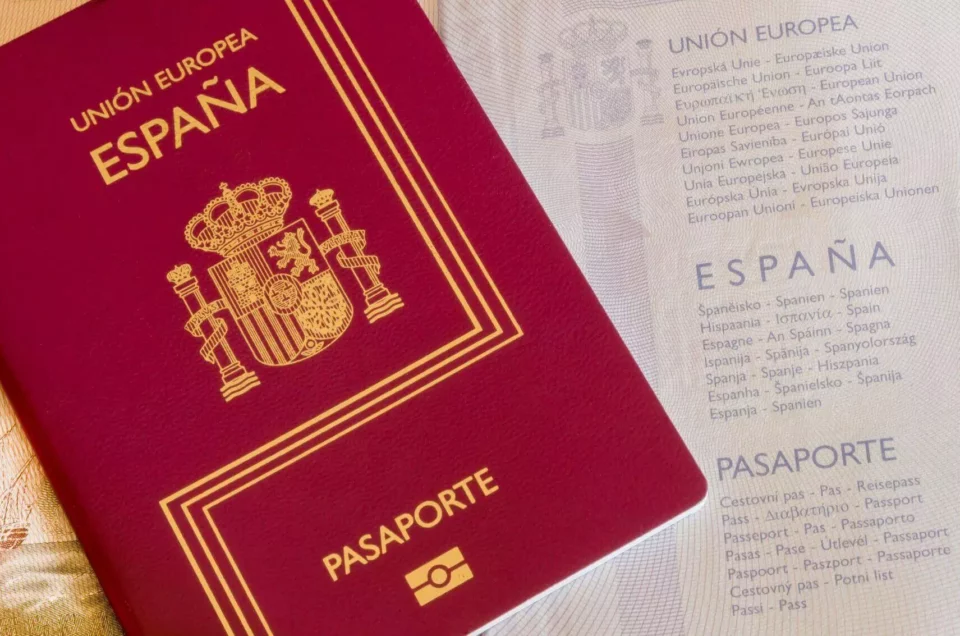If you were wondering if moving to Spain from the US is a good idea, let’s just say that almost six million expats have already decided to call it their new home. However, choosing to move all the way to the Iberian Peninsula could overwhelm you once you’re faced with all its peculiarities, traditions, and regulations. And that’s why we’re here, to inform you about everything you need to know before you head off into one of the biggest adventures.

Find Out the Spanish Visa Requirements for Americans Well in Advance
If you’re moving overseas for the first time, you’ve probably been wondering: Can US citizens move to Spain, and under what conditions. Keep in mind that Americans are allowed to enter the country and stay for up to three months visa-free. On the other hand, if you’re planning to stay longer – to study, work, or retire – it is vital to apply for the right visa. In that case, going straight to the Spanish Embassy and finding out what the documents needed to travel abroad are is a good idea. The application fee you’ll have to pay will vary depending on your nationality and the type of visa you applied for, but the price range for US citizens is between $120 – $1180.
Living the Spanish Life Permanently
Living there for five years enables you to apply for permanent EC residence, which not only allows you to live and work within Spain’s borders but within the entire EU, as well. If, after ten years, you’re still there, calling España your home, applying for Spanish citizenship would be a reasonable thing to do. Of course, if you get married to a Spaniard earlier, you don’t have to wait for years to pass to naturalize because love speeds everything up. Still, keep in mind that this process, too, can take up to two years altogether, depending on the region, and that it implies giving up your original nationality.

Prepare for Lots of Bureaucracy Once You’re There
If you hope that you’ll be done with bureaucracy once the visa application process is over, we have to disappoint you. If you’d like to learn how to live abroad, you’ll have to go through all the paperwork awaiting once you arrive. You may have managed to handle the relocation stress until now, but don’t be surprised to find yourself frustrated and unprepared for all the paperwork.
Just to start your stay as a legal resident, first, you should apply for your foreigner’s ID number (also known as NIE) and register your address at the local council. Relocating across the world is never entirely simple, so ask around about the documents required to get everything settled since these could vary from province to province. Having your passport with you and some proof of residence, such as a rental contract, will help you avoid unnecessary stress.

Living In Some of the Most Popular Areas
Spain is recognized as one of the best places to live abroad, and it’s no wonder that the most challenging part of relocating is choosing between a number of unique places:
- Madrid – If you’re looking for a home in the central part of Spain’s capital, the usual figure goes around 900-1,000€ ($1,060-1,180) a month for a one-room apartment. However, the further you are from downtown, the lower the prices (twice as lower, as a matter of fact!). Also, when on a tighter budget, sharing a flat might be a smart idea, since paying only for your room would likely be around 300-400€ ($350-470). Depending on your habits, the total expenses will certainly differ, but it should not exceed the overall figure of 1,500-1,800€ ($1,770-2,120) per month, even with transportation and entertainment included.
- Valencia – If you’re on a search for one of the most affordable cities when relocating across the world, look no further. With many housing options, from private rooms (300€ or $350), studios (500-600€ or $590-700) and larger apartments (700-800€ or $825-940) to great property deals (50,000-150,000€ or $59,000-177,000), you’ll quickly find a place to call home. Figuring out the places loved by locals will help you reduce the costs of the food and everyday activities.
- Barcelona – Residing in one of the friendliest countries in the world still calls for preparation and planning, especially when it comes to one of the most visited cities. With its magical landscape nestled between sea and mountains, it’s still the most coveted destination, and home to big expat communities. The most significant expense is rent, of course, which goes up to 1,500€ ($1,770), while the average price per square foot goes up to 140€ ($160).
Things to Have in Mind When It Comes to the Cost of Moving to Spain From the USA
Although this nation is recognized as one of the best countries to live in, the answer to How much money do you need to move to Spain will highly differ depending on many factors. Sure, with a much lower cost of living in Spain than in most of the US, spending your money in tourist cities will still be easily affordable for people with American wages. However, if you want to save some money down the road, researching your future home should be an essential part of your relocating abroad checklist. Even if you’re relocating to another country for love and have someone who already knows a lot about your destination, understanding where you’re going is essential.
Furthermore, digging more into some of the best places to live in Europe will give you just enough time to relax and figure out if you need help from an overseas moving company and their professional moving services to move more efficiently. Considering that you might not even be sure about simple stuff, like what to pack when relocating abroad, it might be a good idea to hire someone more experienced for overseas shipping or maybe even for storage services, in case you need them.
Look Into the Local Job Market
Expat life is quite challenging, and the coronavirus outbreak has tested the limits of human endurance even more, especially when it comes to existential issues. Many people lost their jobs, and the road to recovery is not simple. Still, Spain’s economy is one of the fastest-growing in the entire EU, so if you were wondering if getting a job in Europe as an American is feasible right now, the answer is positive. There are still many jobs available within the tourist industry, the creative sector, medicine, teaching, etc.
When looking for a way to integrate into the Spanish job market, you have to start researching it well in advance. Gather all the information about the companies you’re interested in and don’t be shy to contact them. If you are a good match for a company, you may expect to have an interview, so don’t forget to take some time to think of relocation questions to ask the employer.
Can I Move to Spain Without a Job?
For non-EU citizens, a job offer from a Spanish employer is necessary if planning to get a work permit and residence visa. Sure, this would be much easier if you’d taken a few tips for learning a new language and learned some Spanish, but knowledge of English is highly valued, too, so don’t be discouraged. However, it’s important to know that a foreigner is usually employed if their skills are among the shortage occupation list. On the other hand, there is an option to become a long-term resident and not be dependent on the job. Obtaining a non-lucrative visa means you are financially stable and can support yourself and remain in the country without employment.
Do As the Locals Do – Don’t Go Searching for Jobs in Summertime
Although the concept of siesta is somewhat outdated, especially when it comes to bigger cities, these people simply know how to relax. If by any chance, you chose hot summer months to move to Spain, don’t let it surprise you if it appears that the whole country took time off, especially during August. It’s the month of many fiestas, carnivals, and national holidays, and you’ll most probably run into Spanish summer working hours, no matter if we’re talking about bars and restaurants or government offices. Consider yourself lucky if you catch anything open after 3 pm, but we recommend just doing what locals do in the afternoon – go to the beach, ride a bike, wander around, and make good use of your day.
To understand the local job market better, especially if you’re a newbie, check out the video below.
Opening Your Bank Account Before Moving to Spain
Setting up your bank account is another vital point when moving internationally. Opening a non-resident bank account is quite simple, even before relocating there. You can do research and compare bank offers, but expect to pay a monthly fee if you don’t meet the required conditions. Usually, when you have all the needed documentation on hand, your bank account is opened within 1-5 days, so be sure to bring these with you:
- Passport,
- Foreigner’s ID number (NIE),
- Proof of address,
- Employment status.
Also, don’t let your language skills get between you and a much-needed bank account. Keep in mind that your documents have to be officially translated, and if there’s no English-speaking staff, do not forget to have an interpreter or a more talkative friend with you.

There’s a Word to Describe Everything, Especially When Combined With Gestures
People say that learning a language abroad is the easiest way to learn a new language. However, getting familiar with some phrases ahead of time won’t hurt so that you could break the language barrier as soon as you settle in and start with the immersion process. Trying to integrate without any knowledge of Spanish could be very difficult, so don’t hesitate to seize every opportunity to speak the language. Stay open to invitations and take part in social activities. Also, don’t be surprised if you notice varieties in speaking; Castellano is the official variant, but it certainly isn’t the only one. There are also Catalan, Basque, and Galician, which might be a bit confusing for you as an expat. Still, when Spaniards start gesturing expressively, that’s something you’ll undoubtedly understand.

A Home to Remind You That Life Is for Living
Let us round up with the latest data from the OECD Better Life Index, which shows that Spain is ranked as the fourth country when it comes to its well-being. It means that Spaniards know how to maintain a balance between personal life and work. So, It’s official – you’re heading off to one of the happiest places in the world!















